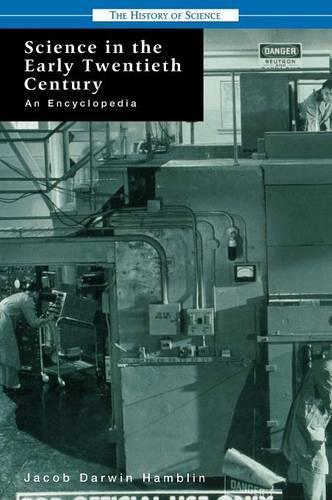
Science in the Early Twentieth Century: An Encyclopedia
(Hardback)
Publishing Details
Science in the Early Twentieth Century: An Encyclopedia
By (Author) Jacob Darwin Hamblin
Bloomsbury Publishing PLC
ABC-CLIO
8th March 2005
United States
Classifications
General
Non Fiction
509.041
Physical Properties
Hardback
432
Width 178mm, Height 254mm
907g
Description
The first A-Z resource on the history of science from 1900 to 1950, examining the dynamic between science and the social, political, and cultural forces of the era. Science in the early 20th century was replete with ironies. Nazi Germany's persecution of the Jews led many of Europe's best physicists to flee to America, where they helped develop the atomic bomb; the Soviet Union, while publicly trumpeting its scientific achievements, threw its best geneticists in jail when they dared to question state-sponsored charlatans. Though many books have highlighted the great scientific discoveries of the early 1900s, from quantum physics to penicillin, few have tackled the wider context in which these milestones were achieved. Science in the Early Twentieth Century covers the balance by covering all the major scientific developments of the period, detailing not only the scientists and their work, but also the social and political forces that dominated the scientific agenda. Over 200 A-Z entries chronicle the landmark scientific discoveries and personalities of the period, including such scientific giants as Albert Einstein and Marie Curie. Placing science firmly within its cultural context, this thoroughly researched, accessible resource takes a uniquely interdisciplinary approach, making it an invaluable text for scientists, educators, students, and the general reader.
Reviews
"Recomended for public and academic libraries." - Booklist "This is a useful, instructive, and entertaining reference for libraries serving high school through university audiences, and for public libraries." - American Reference Books Annual
Author Bio
Jacob Darwin Hamblin, Ph.D., teaches history of science at California State University, Long Beach, CA.
